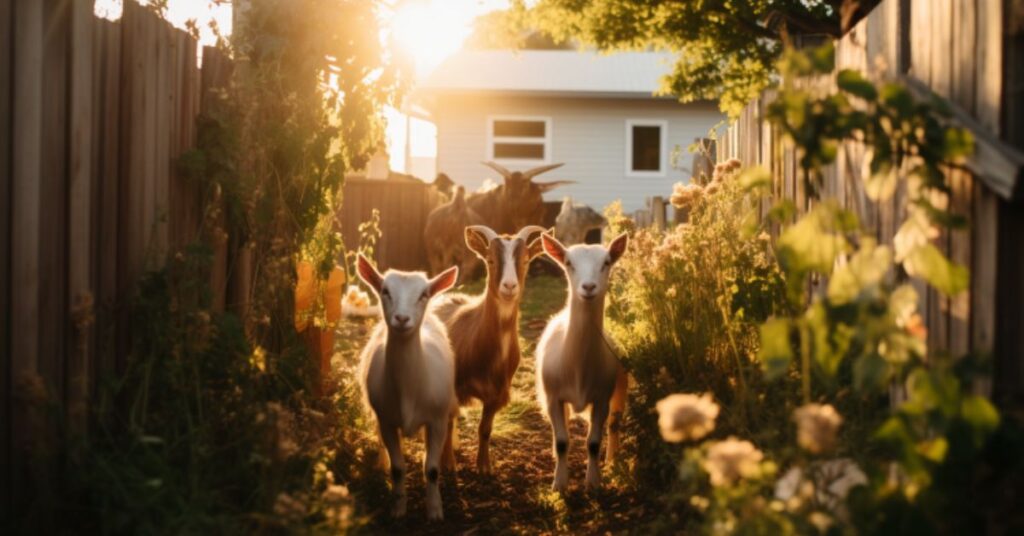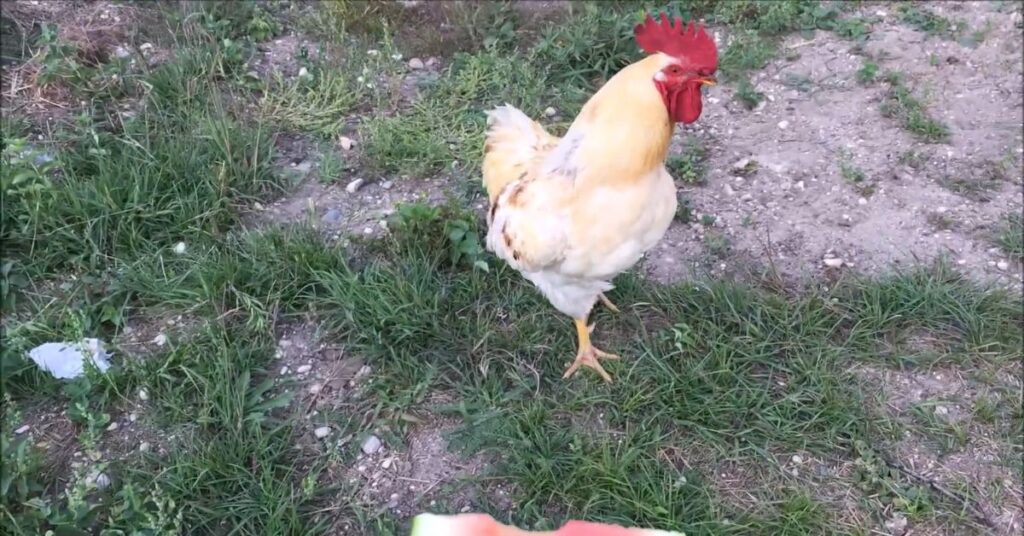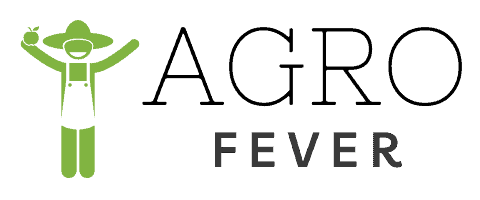As a homesteader raising both goats and chickens, you’ve probably wondered if you can feed chicken feed to your goats. It seems like it should be okay since chickens will happily eat leftover goat grain.
However, goats should not eat chicken feed due to major differences in their digestive systems and nutritional requirements. While a small taste of chicken feed won’t harm a goat, regular consumption can lead to potentially fatal health problems.
Key Differences Between Goats and Chickens

Before diving into the specifics on feeding, it’s helpful to understand some of the basic biological differences between goats and chickens that impact their nutritional needs.
Digestive Systems
Goats are ruminants, meaning they have a four-chambered stomach that allows them to digest fibrous plant materials. Their stomach contains a rumen where feed first goes to be broken down by microbes before moving through the rest of the system. The rumen must maintain a delicate pH and balance of microorganisms to function properly.
In contrast, chickens are monogastrics, meaning they have a simple single-chambered stomach. There is no specialized fermentation vat like the rumen. Their digestive system is streamlined to extract nutrients from a wide variety of feeds including grains, seeds, vegetables, fruits, insects, small animals and more.
Feeding Behaviors
Goats are natural browsers that prefer to eat grasses, leafy greens, twigs and other fiber-rich plant parts. Chickens employ a wider range of feeding strategies including scratching, pecking, digging, grazing, and foraging. They consume more grains and proteins compared to goats.
Diet Categories
Goats are herbivores meaning they solely consume plant materials. Chickens are omnivores and will eat plant and animal matter.
Due to their different digestive systems and natural feeding behaviors, goats and chickens have very different nutritional requirements. What may be perfectly balanced nutrition for a chicken could be totally inappropriate for a goat.
Dangers of Goats Eating Chicken Feed

Chicken feed poses a number of risks to goat health:
Excess Grains
Chicken feed typically contains around 85% grains, usually corn or another cereal grain. Goats’ digestive systems are not well-equipped to handle large amounts of grains. Too many grains disrupt the normal rumen fermentation. This can trigger the following issues:
- Bloat – Excess gas gets trapped in the rumen causing a dangerous condition that can quickly become fatal without intervention.
- Diarrhea – Osmotic diarrhea occurs when undigested particles overwhelm the intestines’ absorptive capacity.
- Acidosis – Carbohydrate overload causes the rumen to become too acidic which kills microbes needed for digestion. This also damages the rumen lining.
- Enterotoxemia – Starch overload allows overgrowth of Clostridium bacteria which release toxins leading to severe diarrhea, neurological signs, shock, and potential death.
Nutritional Imbalances
Chicken feed is formulated to meet the vitamin and mineral requirements of chickens for egg production and growth. However, the calcium to phosphorus ratios and other mineral balances are inappropriate for goats, especially growing kids.
For example, chicken feed has around 5 times as much calcium and 4 times as much phosphorus as what goats need. Excess minerals can have toxic effects.
Chicken feed also contains added vitamins like Vitamin D that can be toxic to goats in high amounts.
Medications and Growth Promoters
Many commercial chicken feeds contain additives like antibiotics, arsenic compounds, and hormonal growth promoters that are prohibited for use in goat feed. Consuming these chemicals at high doses found in chicken feed could be very dangerous.
Obesity
Chicken feed is extremely energy dense, often supplying over 2800 kcal/kg compared to around 2000 kcal/kg in even the highest quality goat feeds. It’s easy for goats to become obese on chicken feed as the calories quickly add up.
Obesity stresses the bones and joints and predisposes goats to pregnancy toxemia, metabolic disorders, and reduced fertility.
Decreased Fiber
Goats require a minimum of 12% crude fiber in their diet to maintain healthy rumen function. Most chicken feeds contain 5% crude fiber or less.
Feeding high amounts of chicken feed could deprive goats of needed fiber leading to poor rumination and digestive upsets.
Specific Nutrient Deficiencies
Goats have limited ability to synthesize certain vitamins like thiamine, biotin, and vitamin C. Chicken feed may not provide adequate amounts of these critical nutrients for goats.
Thiamine deficiency, for example, can lead to polioencephalomalacia, a potentially fatal neurological disease common in goats on high grain diets.
Toxins
Feed ingredients used in chicken feed may contain agricultural chemical residues, mycotoxins from mold growth, or other possible toxins that could negatively affect goats.
While a mouthful here and there of chicken feed is very unlikely to cause issues in an otherwise healthy goat, regularly feeding chicken feed, or providing access to large amounts, can put goats at risk for the above conditions. Kids and pregnant does are especially susceptible to dietary upsets.
Preventing Goats From Accessing Chicken Feed
Since goats love the taste of chicken feed, they will eat it readily if given the opportunity. Here are some tips to prevent goats from accessing chicken feed:
- Store chicken feed securely in metal containers with lids or behind locked doors in an area inaccessible to goats. Never store it in the shared feeding area.
- Hang chicken feeders inside the chicken coop and ensure the access holes are sized only for chickens to use. Goats are expert squeeze artists.
- Feed chickens within their coop and provide goat feed in a separate enclosure. Supervise during feeding time.
- Offer chickens produce scraps or treats during the day when goats are not present or confined to another area.
- Use a cattle panel partition or similar barrier to create a small section of the pen accessible only to chickens during feeding time.
- Try covered “goat-proof” chicken feeders that make it very difficult for goats to access the feed.
- Check your coops and fences for gaps or loose boards that provide potential entry points for wily goats.
With a little strategic planning, you can successfully raise chickens and goats together while preventing the goats from sneaking the chicken feed. Be especially diligent with young kids who are extremely curious and nimble.
What To Do If Your Goat Eats Chicken Feed
If you discover your goat has eaten a large quantity of chicken feed, call your veterinarian right away to avoid a potential life-threatening situation. Treatment needs to be prompt.
Your vet will likely advise you to:
- Isolate the goat from other animals to closely monitor symptoms. Limit food and water initially.
- Administer oral mineral oil and electrolytes to help clear the gut contents. Slowly reintroduce grass hay once symptoms improve.
- Provide probiotic pastes or yogurt to replenish rumen microbes.
- Give B-complex injections and oral calcium and phosphorus gels to support metabolism.
- For severe bloat, pass a stomach tube to relieve pressure, give anti-gas medications, and position the goat to allow eructation (belching).
- Hospitalize for IV fluids and injectable medications if the goat is in shock or severely dehydrated.
While some amount of chicken feed may be able to pass through a healthy goat without issue, it’s imperative to contact your vet at the first sign of distress. Never try to treat a sick goat without professional guidance. Preventing access in the first place is the best solution.
Goat-Safe Feeding Options

Since chicken feed should be avoided, what should you feed your goats? Here are some healthy feeding options:
Pasture and Hay
Goats should have free-choice access to pasture, browse, grass hay, alfalfa, or other forages. These provide essential fiber for rumen health. Legume hays also boost protein intake.
Grains and Concentrates
Some goat feeds include grains like oats, barley, beet pulp, soy hulls or alfalfa pellets to balance nutrition. Limit concentrates to 0.5-1 lb daily for most goats, and avoid feeding straight grains.
Supplements
Provide loose goat minerals, salt licks, baking soda for calcium and buffering rumen acidity. Pregnant does may need calcium gels. Choose supplements formulated specifically for goats.
Treats
Healthy treats in moderation include carrots, raisins, granola, bread, pumpkin seeds, sunflower seeds, etc. Avoid corn and excess grains.
Following basic goat nutritional principles, working closely with your veterinarian, and avoiding chicken feed can help ensure your herd thrives. Contact a ruminant nutritionist to formulate balanced rations tailored to your specific operation. Proper goat nutrition does not include chicken feed.
Frequently Asked Questions
Can goats eat boiled chicken?
No. Goats cannot properly digest any meat including boiled chicken. As herbivores, goats should only eat plant-based feeds. Meat can disrupt rumen function.
Do goats eat chickens or baby chicks?
Goats do not normally consume meat. However, in rare cases caused by severe nutritional deficiencies, goats may eat small birds like chicks. This abnormal behavior indicates an underlying issue that requires veterinary attention and diet correction.
Can chickens transmit diseases to goats?
Yes. Chickens and goats in close contact can spread certain contagious illnesses to each other such as coccidiosis, cryptosporidiosis, and salmonella. Maintaining cleanliness and quarantining sick animals reduces risk. Some separation of housing is advised.
Is chicken feed more harmful to baby goats?
Absolutely. Chicken feed poses even greater risks to kids and young goats because their digestive systems are still developing. The inappropriate protein and mineral levels can disrupt proper growth. Never allow kids access to chicken feed.
Can goats eat layer pellets?
No, layer pellets would have the same risks as chicken feed, if not more. The higher protein and calcium levels could be very problematic. Keep layer feed away from goats just as you would regular chicken feed.
Conclusion
In summary, goats should not consume chicken feed. The differences in their digestion and nutritional requirements mean chicken feed can never adequately meet a goat’s needs. While a few quick nibbles likely won’t hurt a healthy goat, repeated access can lead to potentially life-threatening digestive issues as well as gradual nutritional imbalances. By sticking to proper goat feeds, securing chicken feed storage, and separating feeding areas, you can successfully raise healthy goats and chickens together on your homestead.
Here are some additional resources on feeding goats and chickens:
Let me know if you need any clarification or have additional questions! Proper nutrition is so important for the health of your farm animals.
